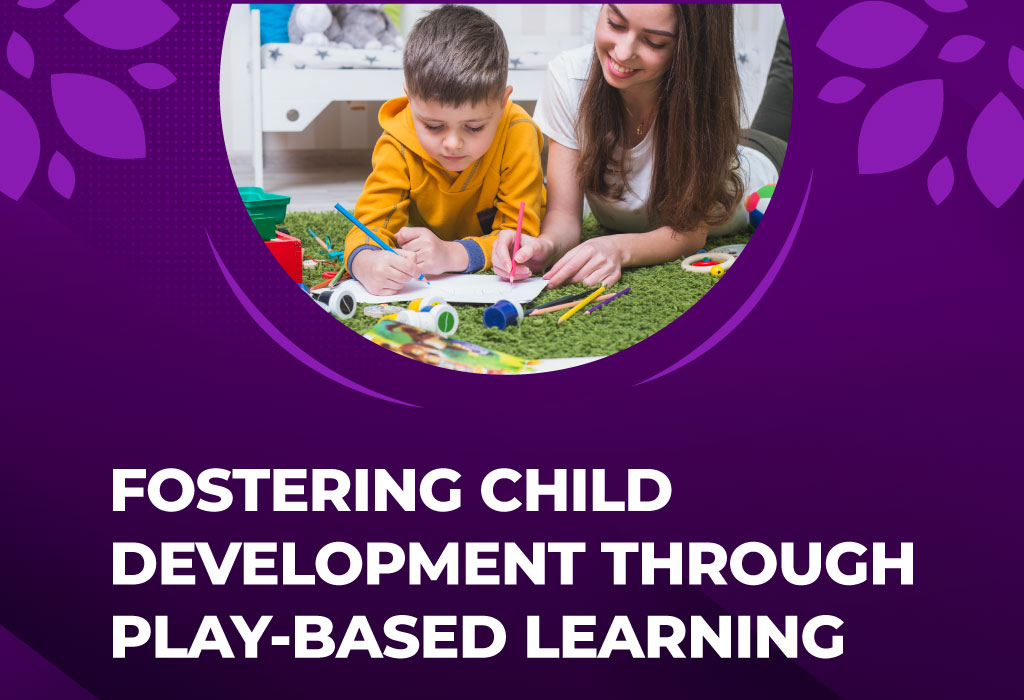Fostering Child Development Through Play-Based Learning

Nowadays, kids are exposed to electronic devices and play practice seems relatively low compared to before. However, it is essential to discover the basis of kids’ emotional, social and intellectual identities through simple activity. Thus, the play-based learning technique is the best option for the kids as it develops their brains using play activities. These concepts are incorporated in Play School in Vedapatti to help boost creative, imaginative and intelligent brains. Let’s discover the definition of play-based learning, its benefits and some examples.
Play-Based Learning: Definition
It is a method of teaching with the use of play activities as the basis of learning. Compared to traditional or planned techniques, your children can follow their curiosity and interest to explore, discover and learn the word. With this approach, kids can create their own stories and make the classroom a more creative space.
Play-based learning opportunities are designed to help your child learn by allowing them to explore their interests. Kids are the main subject of the activities in a teacher-assisted learning environment. Kids learn how to solve problems by using their creative thinking abilities, which they acquire through independent study. Learning through play is separated into sections such as reading spaces, innovative places to play, object or block areas, and organic and textural play spaces.
Why are Pre-nursery Schools Incorporating Play-based Learning?
Children can participate in activities supporting their emotional and academic development in a nurturing setting using play-based learning. Among the crucial skills you will learn to improve through play-based learning are;
– Children can express their feelings creatively when they have a safe environment in which to play. They can process difficult emotions and develop a plan by acting out scenarios. Because of this play-based learning, your child can effectively manage their emotions in a safe and secure environment.
– Play-based learning often includes playing with other kids or role-playing in social settings, which gives kids a chance to practice working together and handling conflict. They may be able to build strong bonds with other students as a result.
– Children can practice problem-solving and decision-making by looking into various situations and senses. Also, by approaching problem-solving in a way that promotes curiosity and critical thinking, they can learn how to overcome physical obstacles.
– Children can acquire confidence in a caring and encouraging setting. They can develop a strong sense of self-worth by taking chances and appreciating their achievements.
– Play-based learning facilitates verbal communication and the expression of opinions and concepts in preschoolers. Playing with their classmates enhances their communication and comprehension skills.
– Children in preschools who have been through trauma may benefit greatly from play-based learning. Thus, children can process their trauma and deal with the emotional effects in a safe, supervised setting by using play as a form of therapy.
Top Play- Based Learning Activities for kids:
1. Play with your senses: Playing with playdough, painting with fingers, and playing with water are examples of sensory play. Children improve their cognitive development, promote creativity, and hone their sensory perceptions by experimenting with various textures, colours, and materials. Through these visual and multisensory activities, kids can learn and express themselves in new ways.
2. Playing Outside: Participating in outdoor activities such as structured games and playground exploration fosters physical growth, enhances gross motor skills, and encourages an appreciation for the environment. Playing outside fosters social interaction, teamwork, and problem-solving skills as kids explore their environment and participate in cooperative games.
3. Creative or Dramatic Play: Children who engage in pretend or imaginative play assume various roles and act out scenarios. Playing house, dressing up as superheroes, or operating a makeshift store are just some examples of how this activity promotes imagination, language growth, and social awareness. Children improve their empathy, problem-solving, and communication skills as they write their own stories and interact with classmates.
4. Playing with Building and Construction: Children may have fun with design, practice fine motor skills, and examine connections between spaces through activities involving building blocks and other construction materials. Children learn about balance and stability, increase their spatial understanding, and enhance their skills in solving problems by constructing buildings and examining architectural concepts.
5. Engaging in physical play: A wide variety of games that involve children using their muscles to play can be classified as physical play. At this point, they can engage in activities such as these to improve their motor skills:
– Throw and catching
– Jogging
– Kicking a ball
– Leaping and jumping
– Dancing to the beat of the song
Conclusion: Nowadays, trends in education continue to evolve, however, the constant thing is play-based learning.
Our Kids School in Vedapatti ensures children learn through play and can witness creative, curious and confident kids. We create a safe and comfortable environment which helps the kids to participate in the activities. Hope you understand the importance of play-based learning and nurturing the potential of today’s kids.

